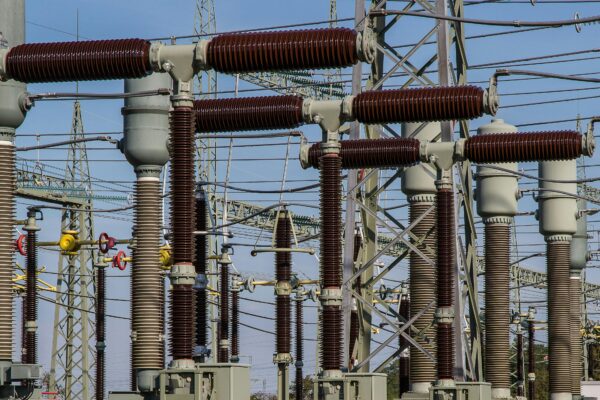With an ambitious target to decarbonise the economy, expand clean energy infrastructure, and build more homes, the need for fast, efficient and predictable energy infrastructure delivery has never been greater. Recognising this, the Department for Energy Security and Net Zero recently launched a consultation on reforms to land access, wayleaves, and consents for electricity network infrastructure.
The Independent Networks Association (INA) welcomes the Government’s proposals as a timely and essential package of changes. These reforms are not merely procedural; they are fundamental to enabling local growth, unblocking energy connections, and delivering on Net Zero targets cost-effectively and affordably.
The Case for Reform
Today, network operators are grappling with extensive connection queues, capacity constraints, and costly, drawn-out negotiations over land access and rights. These delays do not just impact infrastructure projects—they stall new housing developments, delay commercial investments, and slow the roll-out of EV charging infrastructure and low-carbon technologies.
At the heart of the issue lies an outdated system of land rights and consents, in which the process for securing wayleaves and access is fragmented, slow and, in some cases, inequitable. In particular, there is no clear framework around compensation or dispute resolution, and network operators face excessive costs and delays in securing access to land, especially where speculative ‘hope value’ is added to land pricing.
For the UK to meet its infrastructure needs in this decade and beyond, this must change.
Supporting a Competitive and Efficient Infrastructure Sector
Independent networks now connect around 80% of new homes to electricity and gas infrastructure and a growing number of new developments to the water network as well. These networks operate in competition with incumbent distribution companies, and deliver faster, more tailored, and more cost-effective solutions for developers and consumers.
However, the growth and efficiency delivered by the competitive model is being undermined by systemic barriers, particularly around land access. This is why the INA supports the Government’s proposals to:
- Extend the timeframe for securing Necessary Wayleaves from 3 to 6 months, which will better support voluntary agreements and reduce the number of cases escalating to statutory determinations;
- Allow written representations without requiring consent of the parties, increasing efficiency while retaining fairness;
- Move to 40-year standard terms for wayleaves to reduce duplication and ensure consistency across the UK;
- Shift tree maintenance responsibilities from landowners to licensed operators, improving safety, resilience and clarity;
- Align England’s permitted development rights with those in Scotland, allowing for the construction of substations up to 45 cubic metres without full planning permission;
Each of these changes will contribute to a more consistent, predictable and efficient system that accelerates energy infrastructure delivery—at lower cost to consumers.
Creating a Fair and Transparent System
One of the critical issues for networks as a whole, and for INA members, is the need for clarity around compensation. In the current system, landowners can impose speculative ‘hope premiums’ when negotiating land access, inflating project costs unnecessarily. Ultimately, these costs are passed on to energy bill payers.
Moreover, the Government must address the issue of unregistered land, which can hinder projects and growth. We believe that any new policy or guidance must explicitly state how unregistered land is to be treated, ensuring that critical projects are not held up by bureaucratic ambiguity.
Levelling Up the Planning System
The UK’s infrastructure ambitions depend not only on new funding, but also on modernising the regulatory and planning environment in which projects are delivered. That includes rationalising thresholds for Nationally Significant Infrastructure Projects (NSIPs), which currently require a separate and often lengthy approval process.
We support proposals to raise the NSIP threshold for overhead lines from 2km to 10km and to exempt 132kV wooden pole projects from NSIP classification. These changes will significantly reduce delays for lower-voltage infrastructure, which is vital to enabling economic development.
Equally, the proposal to allow electricity operators to install underground cables in private streets—bringing parity with the gas sector—is a long-overdue correction that will remove unnecessary hurdles in urban areas.
Powering Growth Through Practical Reform
The Government has set out a compelling ambition: to build faster, greener and with greater confidence. But ambition alone is not enough. Meaningful reform of land access and consents is a necessary enabler of growth.
By reducing delays, increasing transparency, and striking a fair balance between landowner rights and public needs, these reforms can help unlock growth, support faster grid connections, and deliver a more flexible, resilient, and affordable energy system. The Government should implement reforms quickly—and remain open to further changes that promote efficient infrastructure delivery in the future as well. That includes clearer guidance on unregistered land, standardised compensation mechanisms, and an approach that treats local growth as a national priority.
The UK’s energy future depends on our ability to plan, build and connect at speed. Land rights reform is not just a technical detail—it is a cornerstone of delivering the infrastructure needed to power Britain’s Net Zero transition and economic renewal.

